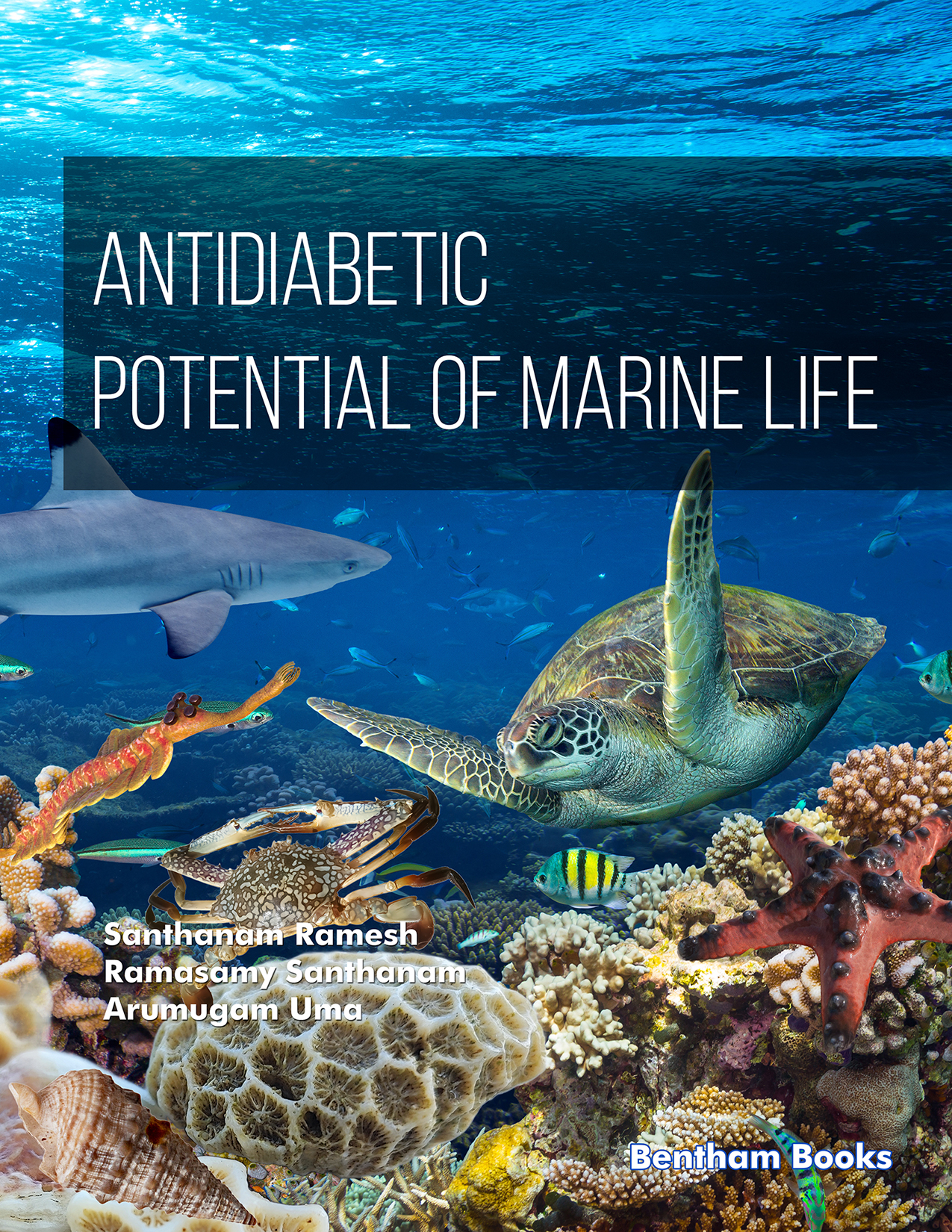Preface
Diabetes mellitus is a metabolic disorder that is associated with several life-threatening complications, including atherosclerosis, retinopathy, and nephropathy. Diabetes is usually caused by the interaction of genetic and environmental factors and is characterized by a lack of insulin secretion and insulin resistance, which may lead to metabolism disorders of fat, protein, and carbohydrates. In 2013, it was estimated that more than 382 million people had diabetes, and this number is expected to increase to 500 million by 2030. It is expected that this disease will be the 7th leading cause of death. The current therapies available for the treatment of this disorder mainly include oral antidiabetic drugs and insulin injections. However, it is reported that the continuous use of synthetic drugs may cause many side effects. Therefore, there is an urgent need for safe and efficient antidiabetic drugs for the management of this disorder. Marine biota, such as marine microbes, marine plants, and marine animals, have been found to be promising sources with potent antidiabetic activity.
Though a few books are presently available on the therapeutic potential of marine biota, a comprehensive volume dealing with the antidiabetic potential of the different constituents of marine life has not been published so far. The present book, prepared by the scientists of both pharmaceutical and marine biology disciplines, will be the first of its kind to answer this long-felt need. It deals with aspects such as marine-derived molecules and lead compounds with antidiabetic activity, the antidiabetic potential of marine microorganisms, marine macroalgae, marine plants (seagrass and mangrove plants), marine invertebrates, ascidians, and marine fishes, and antidiabetic potential of marine fishery by-products such as fish oils, fish and shellfish wastes, as well as chitosan and its derivatives. It is hoped that the present publication will be of great use as a standard text-cum-reference for teachers, students, and researchers of various disciplines, such as biomedical sciences, pharmaceutical sciences, marine biology, and fisheries science. It will also be a valuable reference for libraries of colleges and universities and as a guide for the pharmaceutical industries involved in the development of new antidiabetic drugs from marine microbes, marine plants, and marine animals.
Santhanam Ramesh
Karuna College of Pharmacy
Kerala University of Health Sciences
Palakkad, Kerala
India
Ramasamy Santhanam
Fisheries College and Research Institute
Tamil Nadu Veterinary Animal Sciences University
Thoothukudi, India
&
Arumugam Uma
Directorate of Incubation and Vocational training in Aquaculture (DIVA)
Tamil Nadu, India
Tamil Nadu Dr J. Jayalalithaa Fisheries University
Tamil Nadu, India

